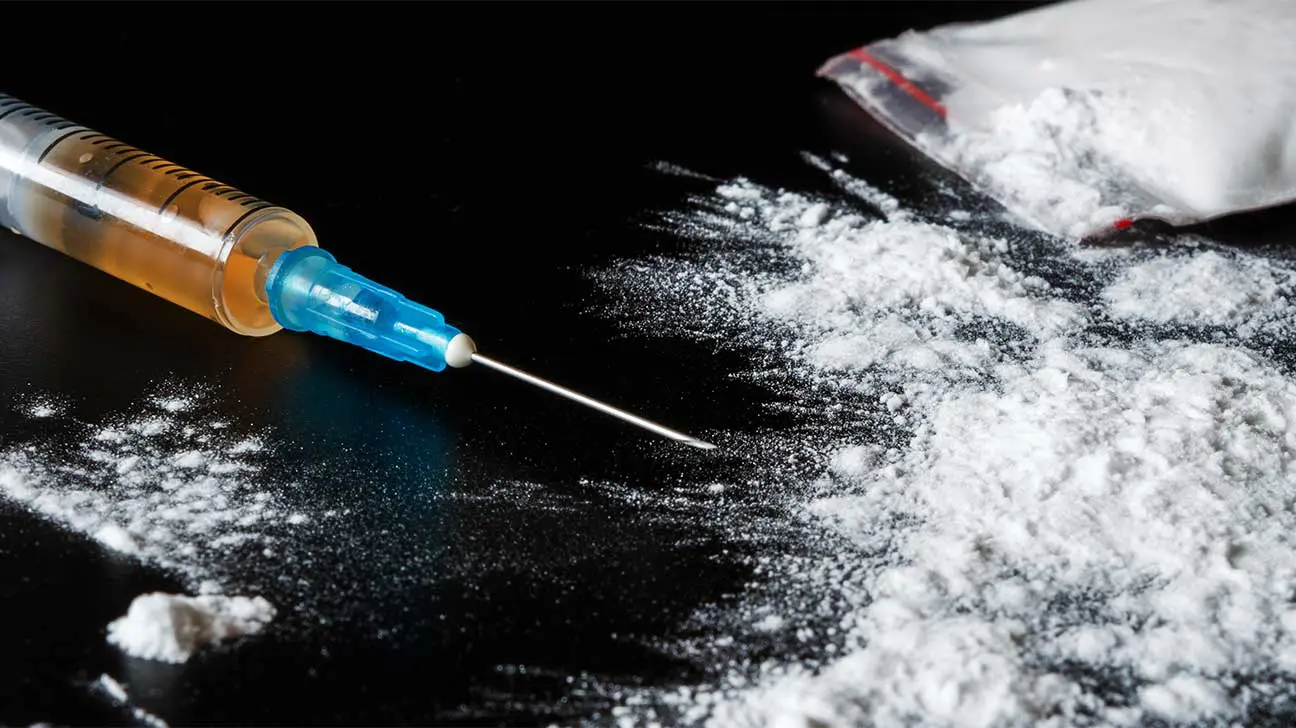
“Synthetic heroin” is a general term for synthetic opioids like fentanyl, carfentanil, and methadone that are mixed and cut with other opioids and fillers.
The epidemic of heroin and prescription opioid addiction and abuse has created a demand for other forms of these strong, illicit drugs.
While heroin is a “natural opioid” — derived from the opium poppy — it carries strong negative side effects and the risk of overdose, just as with synthetic heroin and other opioids.
How Is Synthetic Heroin Used?
Drugs like fentanyl and carfentanil that are mixed with other opioids can be injected, snorted, or smoked.
What Does Synthetic Heroin Do?
Fentanyl is about 50 times more potent than heroin, while carfentanil is 100 times more powerful than fentanyl.
For a person that takes a white powder named “synthetic heroin,” there is a range of possible potency and high danger involved.
For example, carfentanil is used as an animal sedative, while fentanyl is usually taken as an extended-release pain reliever patch.
Both will bind to opioid receptors in the brain and may cause deadly overdose symptoms.
Effects Of Synthetic Heroin Use
Since illicitly produced synthetic heroin encompasses a number of opioid drugs with varying levels of potency, their effects will vary in intensity.
Short-Term Effects
All prescription opioids and other forms of synthetic heroin will produce similar effects, as they all work to slow down vital central nervous system processes.
In the short-term, these opiates will produce effects including:
- sedation
- pain-relief
- euphoria
- confusion
- constipation
- relaxation
- respiratory depression
- constricted pupils
- dizziness
- nausea/vomiting
Long-Term Effects
People that regularly use heroin may take synthetic heroin. The long-term effects of many synthetic opioid analgesics include permanent physical and emotional damage.
Abuse of synthetic opioids like fentanyl places stress on the heart, organ systems, and may cause brain damage.
Some effects of prolonged synthetic heroin abuse include:
- low blood pressure
- irregular heartbeat
- weakened heart valves
- heart attack
- stroke
- memory loss
- irritability
- chronic depression
- increased risk of cancers and infections
- kidney damage
- liver damage (hepatitis)
- constipation
Synthetic Heroin Drug Overdose
Because drugs like fentanyl and carfentanil are much more powerful than heroin, an increase in dosage by the smallest amount could cause a deadly overdose.
Opioid overdose is a healthcare crisis, and opioid overdose deaths have been reported in emergency departments across the country.
Overdoses can be treated with naloxone (Narcan) if addressed quickly.
Signs of a synthetic heroin overdose may include:
- coma
- slow or labored breathing
- cold or clammy skin
- agitation and confusion
- pinpoint pupils
- extreme drowsiness and lethargy
Heroin Dependence And Withdrawal Symptoms
Just like heroin, the synthetic drugs passed off as synthetic heroin attach to opioid receptors and can make people both emotionally addicted and physically dependent.
Some withdrawal symptoms and signs of heroin addiction include:
- severe cravings
- depression
- irritability
- uncontrollable leg movements
- increased blood pressure and heart rate
- insomnia
- flushing
- chills
- nausea, vomiting, diarrhea
- weakness
- muscle and bone pain
- cold flashes with goosebumps
Getting Help For Synthetic Heroin Abuse
If you or a loved one is abusing synthetic opioids, then the risk of accidental overdose is very high. Treatment for any substance use disorder can help you live a healthier life.
Call our addiction treatment specialists for more information on the range of heroin inpatient and outpatient treatment options available for you.
It is nearly impossible to truly thrive with heavy drug use. Let us help you start on the path towards a better life today. Call our helpline now to get started.
Addiction Resource aims to provide only the most current, accurate information in regards to addiction and addiction treatment, which means we only reference the most credible sources available.
These include peer-reviewed journals, government entities and academic institutions, and leaders in addiction healthcare and advocacy. Learn more about how we safeguard our content by viewing our editorial policy.
- Centers for Disease Control and Prevention (CDC) — Synthetic Opioid Overdose Data
https://www.cdc.gov/drugoverdose/data/fentanyl.html - United States Drug Enforcement Administration (DEA) — Drug Facts Sheet: Synthetic Opioids
https://www.dea.gov/sites/default/files/2020-06/Synthetic%20Opioids-2020.pdf - National Institutes of Health (NIH): PubChem — Carfentanil
https://pubchem.ncbi.nlm.nih.gov/compound/carfentanil#section=Top - National Institute on Drug Abuse (NIDA) – Heroin Drug Facts
https://www.drugabuse.gov/publications/drugfacts/heroin - International Journal of Drug Policy –— Research paper: “Every ‘Never’ I Ever Said Came True”: Transitions from opioid pills to heroin injecting
https://www.academia.edu/33117175/Every_Never_I_Ever_Said_Came_True_Transitions_from_opioid_pills_to_heroin_injecting


